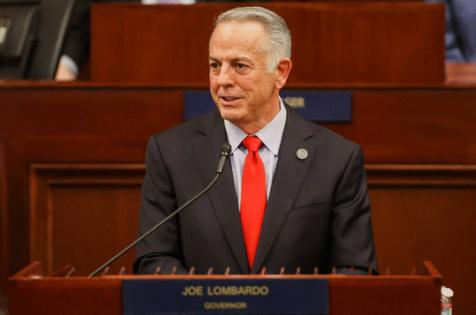Could Nevada legalize medical aid in dying?
Published in Health & Fitness
A push to legalize medical aid in dying in Nevada is in the Legislature is once again, despite several failed efforts that included a veto from Gov. Joe Lombardo two years ago.
Assembly Bill 346 would allow terminally ill patients to self-administer medication to end their lives if they meet the bill’s eligibility criteria. It includes rules that require a patient seeking to end their life to make two verbal requests and one written request, as well as steps for the provider to discuss with the patient and an annual report on the use of medical aid in dying.
According to the bill, a patient seeking medical aid in dying must meet the following conditions:
—Is at least 18 years old.
—Has been diagnosed with a terminal condition with six months or less to live by at least two practitioners.
—Has made an informed and voluntary decision to end his or her life.
—Is mentally capable of making such a decision.
—Is not requesting the medication because of coercion, deception or undue influence.
Under the bill, providers are not required to prescribe or dispense the medication but must provide that information. It prohibits life insurance policies and annuity contracts from canceling or posing additional charges because of the medication request.
During a two-hour hearing in the Assembly Select Committee on End-of-Life Care on Wednesday, bill co-sponsor and Assemblymember Joe Dalia, D-Henderson, told lawmakers he took on the effort because of his personal experience with the realities of palliative care.
At times overcome with emotion, Dalia told the committee his father was hospitalized with end-stage Chronic Obstructive Pulmonary Disease, or COPD, in December 2019. Doctors told him he would likely die while having a coughing fit “that will not end” and advised him against traveling out of state to a jurisdiction that allowed for medical aid in dying for terminal patients.
A hospice nurse gave Dalia’s father morphine and Ativan when that time came, Dalia told lawmakers when introducing the bill. But he still struggled for 12 hours and could barely communicate. What he could get out was not goodbyes, but frustrations with the palliative care and pain.
“Because of the state of affairs, my dad died exactly the way he didn’t want to die: scared, slowly and in unimaginable pain,” Dalia said.
Versions of the bill have been introduced each session since 2015. The text is largely the same as Senate Bill 239 from 2023, which received bipartisan support on its way to the governor’s desk but was one of Lombardo’s record 75 vetoes that session.
In his veto message, Lombardo attributed his discomfort in signing the bill to medical advancements and the lack of similar policies in most other states.
“End of life decisions are never easy,” he wrote in his June 2023 message. “Individuals and family members must often come together to face many challenges — including deciding what is the best course of medical treatment for a loved one. Fortunately, expansions in palliative care services and continued improvements in advanced pain management make the end-of-life provisions in SB 239 unnecessary.”
Opponents of AB 346 — including right to life groups, individual physicians, and spiritual groups — said the bill lacked safeguards, went against the Hippocratic Oath and that the government should focus on improving hospice and palliative care. More than 30 people were unable to testify because of time constraints in the hearing.
Supporters of the bill included patient advocacy, physician groups and several death doulas, who said their experience showed how medical aid in dying provided more care options for eligible adults at the end of their life.
_____
©2025 Las Vegas Review-Journal. Visit reviewjournal.com.. Distributed by Tribune Content Agency, LLC.










Comments